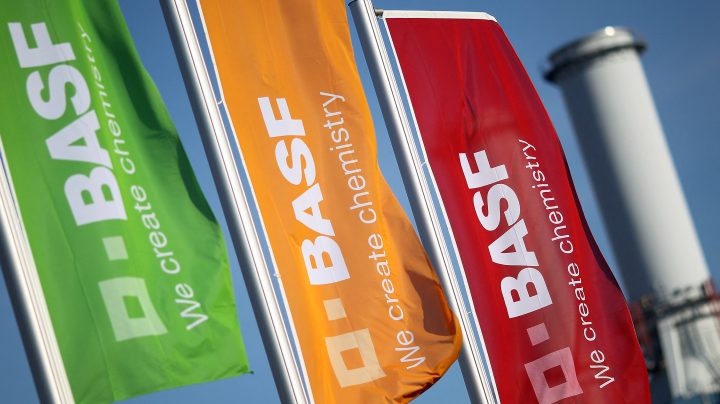
Chemical giant BASF is under threat after Russians turn off the gas
Chemical giant BASF is under threat after Russians turn off the gas

Germany once relied on Russia for around half of its natural gas. But since the Kremlin began choking off supplies, the Germans have turned to other gas producers, built up their reserves and sharply reduced their use of this fuel. Confidence has been growing that Europe’s industrial powerhouse may get through the winter relatively unscathed by the loss of Russian energy.
But everything depends on the severity of the winter. There remains a lot at stake since the country’s all-important manufacturing industry would bear the brunt of any shortages, which are still a possibility.
“If this will be a really cold winter, we will have a substantial problem. Then there will not be enough natural gas,” said Ole Hvalbye, an energy analyst with the SEB bank in Oslo, Norway. “A really cold winter will be really difficult to deal with — no doubt about it.”
It would be really difficult for German manufacturers and especially for one company: The chemical giant BASF needs a continuous supply of vast quantities of natural gas, both as a source of energy and as a raw material.
Its main plant at Ludwigshafen, in the state of Rhineland-Palatinate, uses as much gas as the whole of Switzerland. But under German law, if the country has to ration its reserves, homes and hospitals will get priority.
“The government would have to shut down the supply to big industrial consumers, and definitely BASF will be one of those,” said professor Stefan Lechtenboehmer of the Wuppertal Institute. “If the shutdown was only a few days, it wouldn’t matter too much, but if they shut down for a month or even more, then they would really be in trouble.”
Trouble in Germany tends not to just stay in Germany. BASF is the world’s largest chemical company, and, as former German lawmaker Hans-Josef Fell pointed out, it makes the building blocks for a vast quantity and range of products for the global market.
“Plastics, materials for building and for cars, pesticides, fertilizers, textiles and plenty more,” Fell said, “and so BASF is very important.”
Consider the impact of a potential disruption in the supply of those products after what happened to the auto industry following the chip shortage. Fell, an ardent environmentalist and long-term critic of BASF, said he knows whom to blame.
“BASF has a big responsibility because they lobbied every time politics to increase the gas consumption from Russia. BASF are themselves responsible for the disaster that they have today.”
In a statement, BASF attributed its heavy reliance on Russian gas to, among other things, the decline in European gas production and the German government’s refusal to authorize fracking. German industry and consumers, it said, had benefitted from what had been a reliable and low-cost source of energy.
Rudi Bachmann, professor of economics at the University of Notre Dame in the United States, said it’s unfair to single out BASF for criticism.
“Is industry more culpable? Are politicians more culpable?” Bachmann said. “I think they both are and they’re both responsible because they pushed each other to get Germany into gas dependency on Russia.”
But although industry would be in the firing line in the event of rationing, the professor does not believe the government would ever pull the plug on BASF.
“They’re politically so connected, so important to the German production chain, that I would be shocked if they would be rationed to an extent that they would have to be shut down completely.”
Even if BASF does remain open, a lot of damage has already been done by the loss of Russian energy. Germany’s gas supplies have been costing up to 10 times what Americans have to pay — a serious competitive disadvantage. Heavy manufacturing as a whole in Germany is already in jeopardy.
There’s a lot happening in the world. Through it all, Marketplace is here for you.
You rely on Marketplace to break down the world’s events and tell you how it affects you in a fact-based, approachable way. We rely on your financial support to keep making that possible.
Your donation today powers the independent journalism that you rely on. For just $5/month, you can help sustain Marketplace so we can keep reporting on the things that matter to you.











